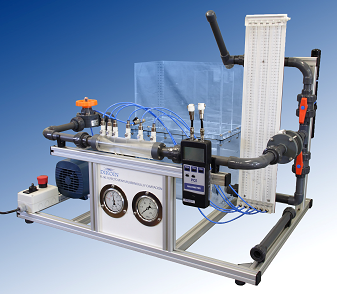Why do planes fly?
Discover with the study of Bernoulli’s equation and its demonstration why planes fly.
Bernoulli’s equation describes the energy conservation law in a fluid. To do this we need the components of energy that can have a moving fluid. In a ideal situation, without friction or viscosity, the 3 components of energy would be:
- Kinetic energy: Kinetic energy is due to the speed of fluid.
- Potential energy: The potential energy is due to the height of the fluid.
- Pressure energy: It is energy due to the pressure that a fluid has.
The 3 parts of the energy, in formula, would look like this:

Bernoulli’s equation
The first part corresponds to kinetic energy, the second to pressure energy and the third to potential due to the high jumps it may have.
The fact that the sum of the 3 energies stays constant means, if there’s a variation in one of them, there must be one variation in another to keep it constant.
For example, if you change the speed of a fluid without changing its height, the pressure must vary. If we increase the speed (e.g. making it go through a narrower section, the pressure exerted by the fluid will be lower. If we slow down, the pressure will be higher. This simple approach explained by Bernoulli’s principle, gives the reason for the lift that occurs on the wings of an aircraft.

The speed at the top of the wing increases by the law of mass continuity, where the flow at the inlet should be equal to the flow at the outlet. By increasing the speed above, the kinetic energy of the fluid increases and according to Bernoulli’s principle, so that the sum of energies remains constant, either its height or its pressure varies. The height does not vary, therefore, the pressure of the fluid is lower.
A lower pressure at the top of the wings and higher pressure down causes the wing to suffer a force due to the difference in pressures in its area.
To understand why aircraft fly and the equation in a practical and visual way, use our FL 06.1 EFFECT VENTURI, BERNOULLI and CAVITATION lab teaching equipment and get experimental learning that will help strengthen knowledge.



